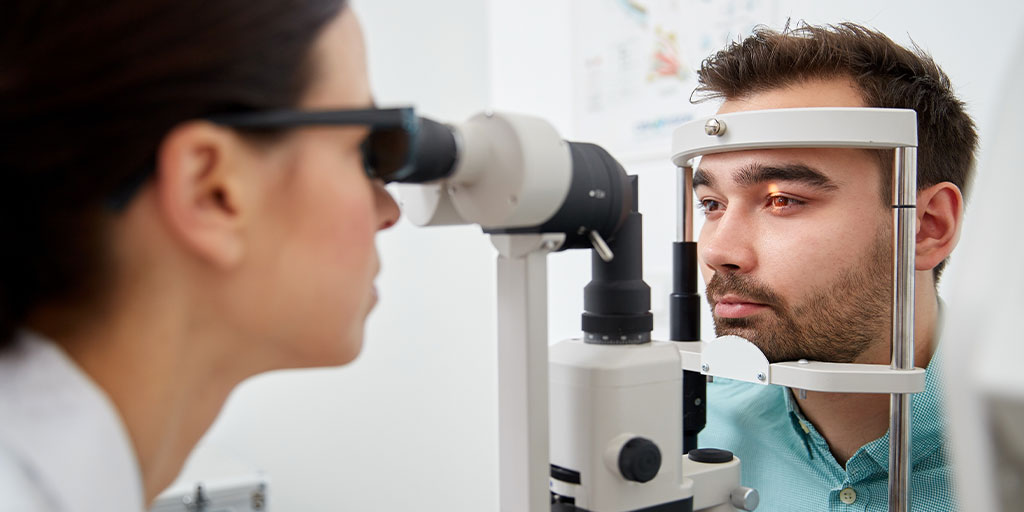How Often Should I Get an Eye Exam?

Regardless of your age or the quality of your vision, an eye exam is vital to your eye health. During an exam, your eye doctor checks your eyes to identify any potential problems or update you on current conditions with your vision. An examination is quick, painless, and may just prevent a serious problem from occurring with your vision.
A thorough exam can help the doctor spot serious diabetes, lupus, high blood pressure, high cholesterol, and eye diseases like glaucoma and macular degeneration. With regular eye exams, you may catch these problems earlier and avoid serious complications. Below is a look at the importance of eye exams and how often you should schedule an evaluation.
What Is an Eye Exam?
An eye exam involves a series of tests that your doctor performs to evaluate your vision and check for eye diseases. Each test during an eye exam evaluates a different aspect of your vision or eye health. For instance, the eye doctor is likely to use various instruments, shine bright lights at your eyes and request that you look through an array of lenses.
A comprehensive eye exam may include the following assessments:
- Patient history
- Visual acuity
- Cornea curvature
- Lens refraction
- Eye focus
- Overall eye health
A doctor may also want to look at specific aspects of your eye's visual function and health. Preliminary tests can include evaluations of depth perception, color vision, eye muscle movements, peripheral or side vision, and the way your pupils respond to light.
Recommended Scheduling for Eye Tests
On average, you should follow the recommended eye exam schedule below.
| Age | Frequency |
| Six to 12 months | First eye examination |
| Three to five years | Second eye examination |
| Six to 20 | Every three to four years |
| 21 to 60 | Every one to two years |
| 61 and up | Annually |
You'll want to have your eyes checked more often if you wear glasses or contact lenses, have a family history of eye disease, or have a chronic condition that puts you at risk for eye disease, like diabetes.
Factors That Determine Eye Exam Frequency
Several factors determine how often you should schedule your eye exam.
Age
The most crucial periods for sight, when a doctor may need to assess vision more frequently, are during the development stages in early childhood and after age 61.
Eye Conditions
If your sight is healthy, you may be able to stick to a regular exam routine. However, if you have an eye condition caused by disease or injury, you may need to schedule your eye exams more frequently. For instance, if you have glaucoma, you will need to schedule frequent exams before and after any procedures.
Overall Health
Numerous health conditions can affect your health, including diabetes, high blood pressure, measles, Lyme disease, shingles, autoimmune conditions, Rosacea, liver disease, sickle cell disease or malnutrition. Any of these medical conditions can contribute to poor eyesight or vision deterioration over time.
Environment
If your work or home environment puts a constant strain on your eyes, it can affect your vision. For example, if you work in poor lighting every day, your eyes may suffer. Or you may work in toxic environments that damage your eyes. Certain technologies can harm your vision. As a result, you may need to schedule exams more often.
Lifestyle
Lifestyle can be a significant contributor to the quality of your eyesight. If you drink excessively or smoke for long periods, these habits can wear your eyes out. Excessive screen time on your computer, phone or another device will ruin your eyes eventually.
Schedule an Eye Exam at Gulf Coast Vision Center
To schedule an eye exam at Gulf Coast Vision Center, contact us at one of our five locations in Northwest Florida.
